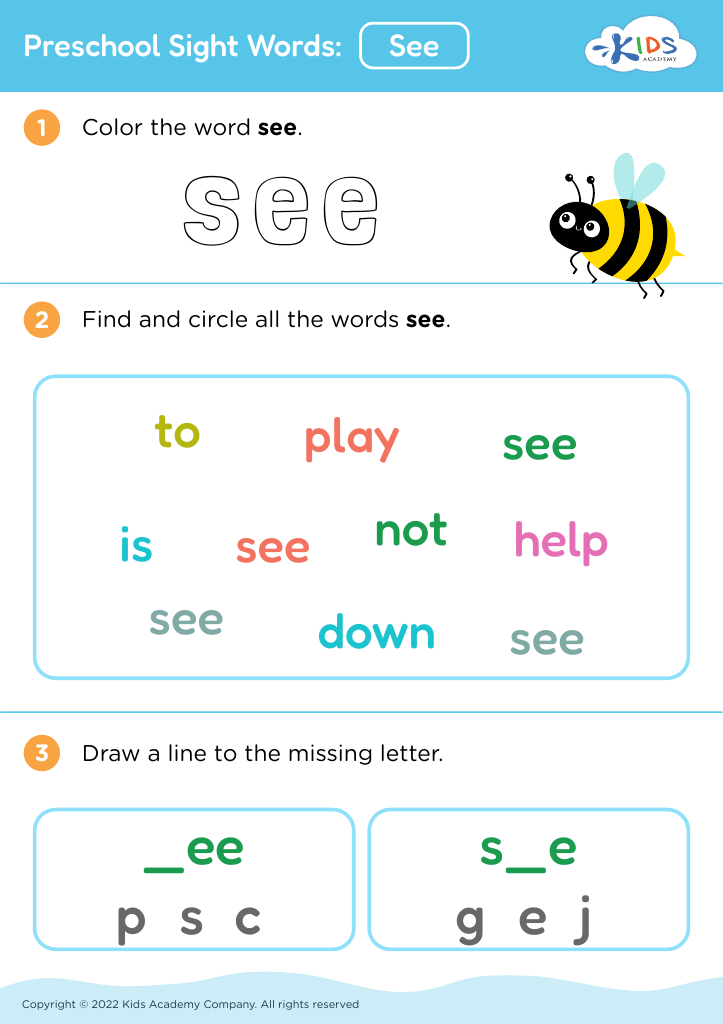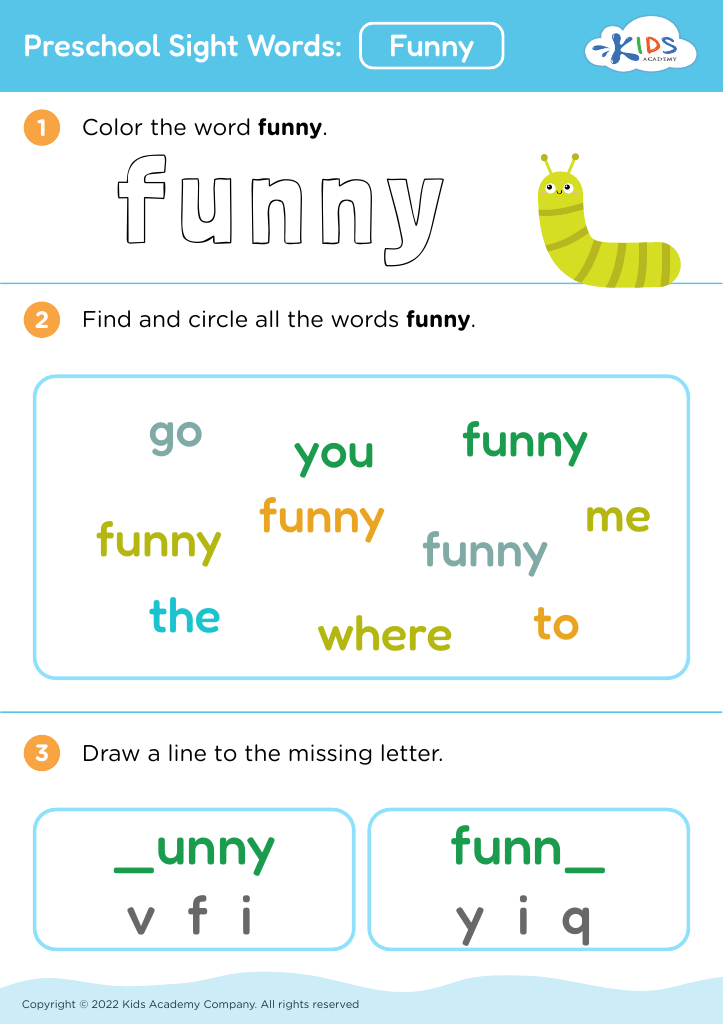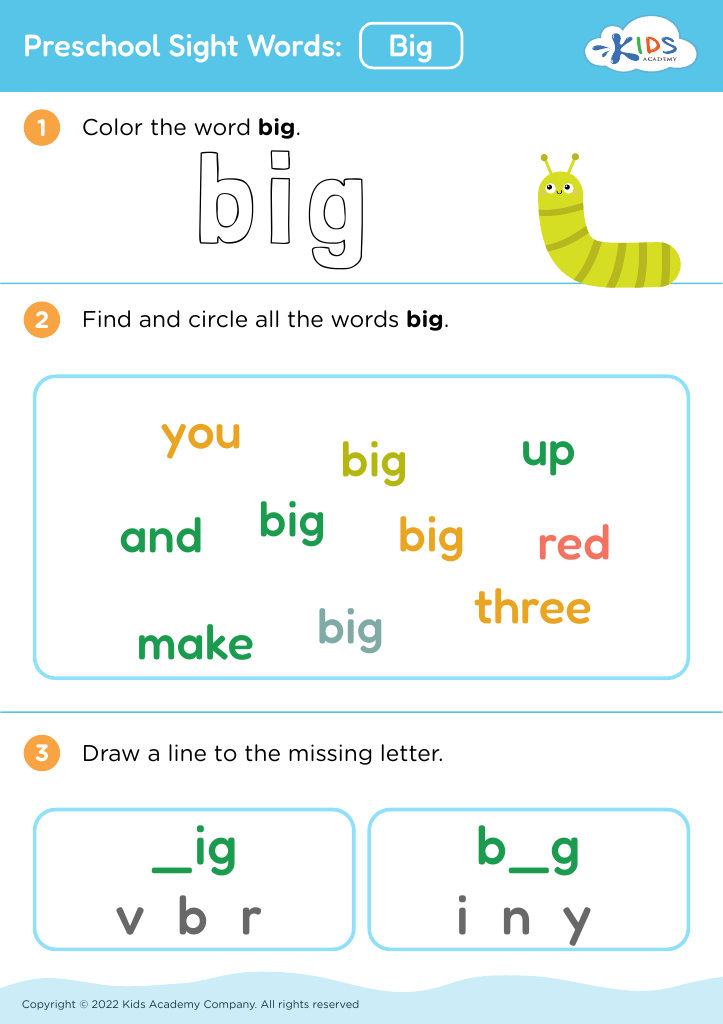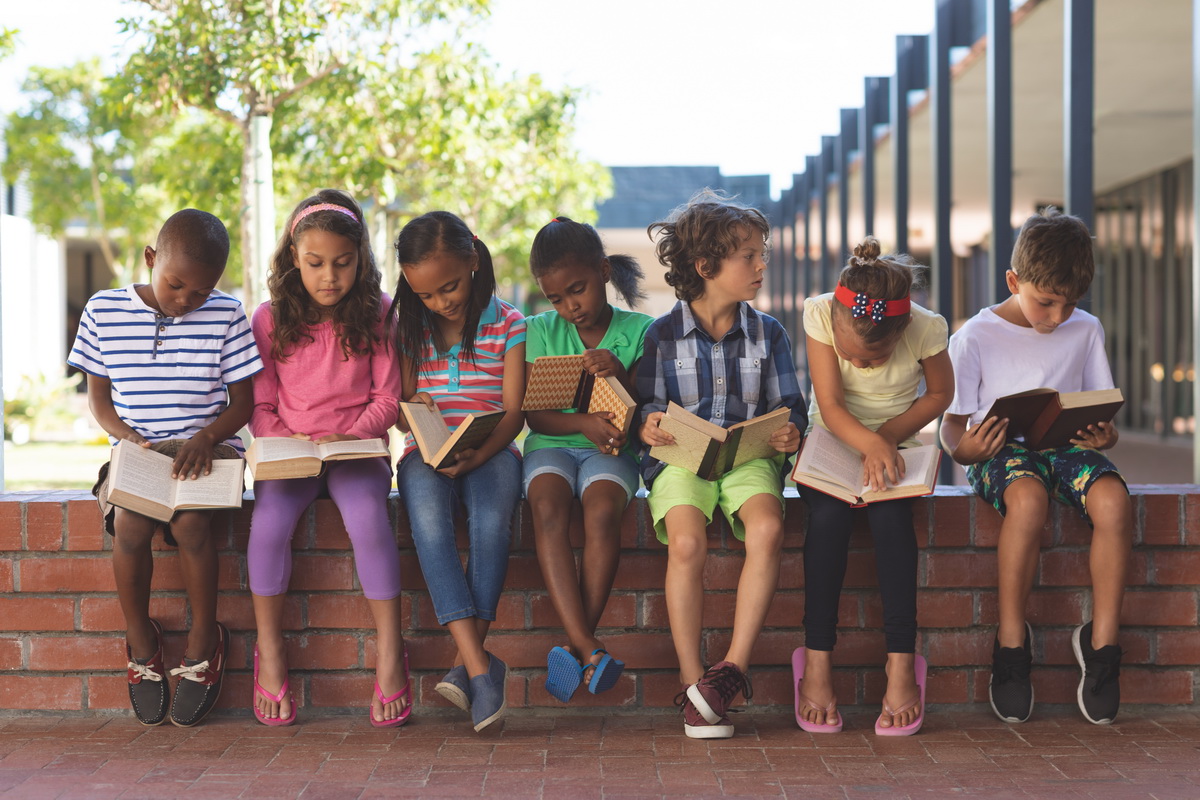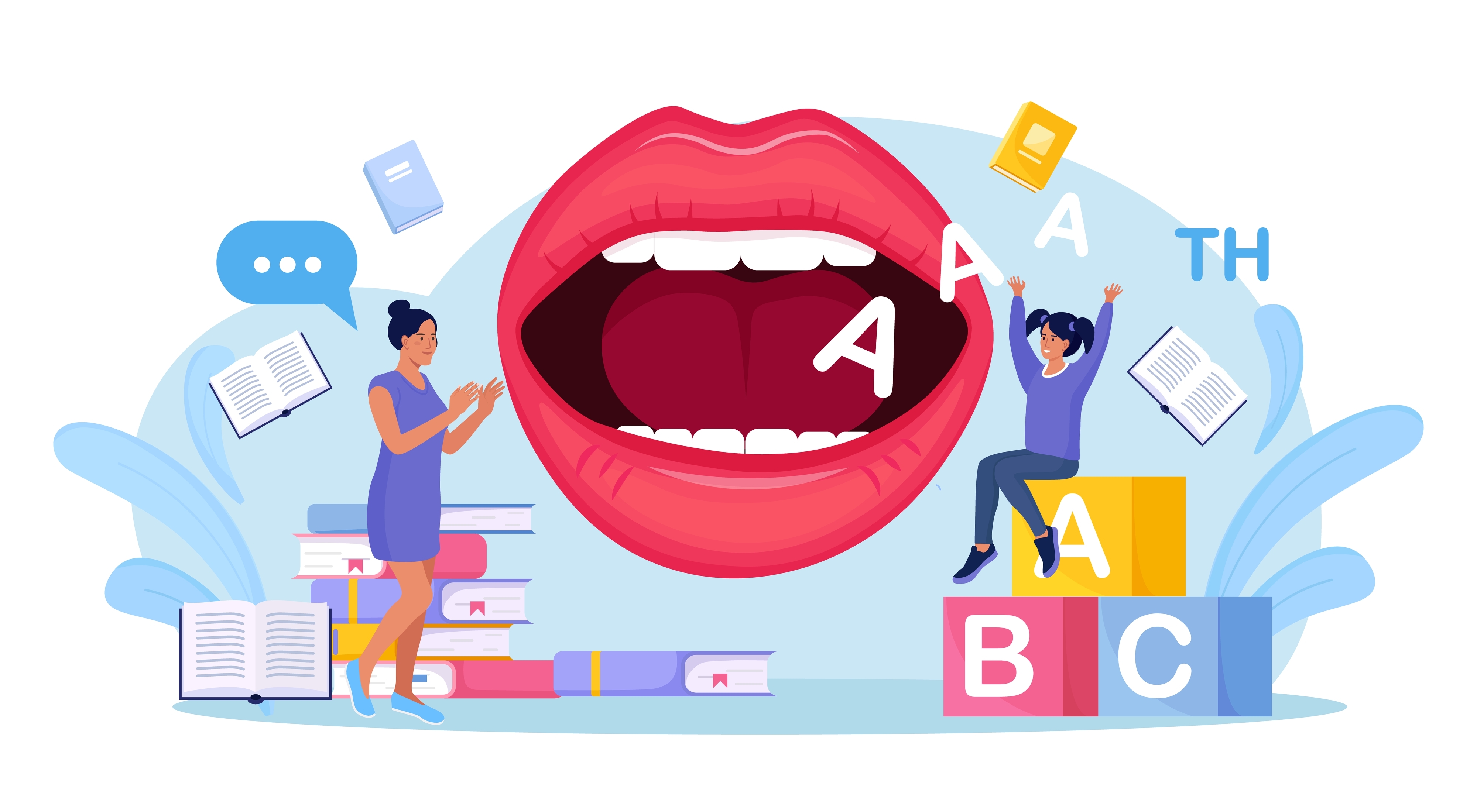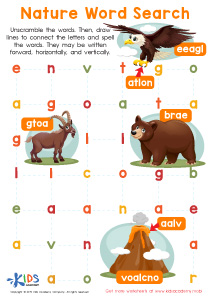Reading comprehension Sight Words Worksheets for 3-Year-Olds
3 filtered results
-
From - To
Introduce your 3-year-old to the joy of reading with our engaging Reading Comprehension Sight Words Worksheets! Designed specially to enhance early literacy skills, these fun and colorful printables help young learners recognize and understand essential sight words. Each worksheet combines simple sentences, vibrant illustrations, and interactive activities to make learning an enjoyable experience. Perfect for fostering a love for reading and boosting confidence, our expertly crafted worksheets are tailored to suit your child's developmental stage. Set the foundation for future reading success at Kids Academy, where learning meets fun. Download now and watch your child's reading abilities soar!
Reading comprehension and sight words are essential elements in the early development of literacy skills for 3-year-olds. Fostering these skills at an early age can significantly influence a child's future reading abilities and overall academic success. Sight words are the most commonly used words in the English language, and recognizing them by sight allows children to read more fluently. Fluency is critical as it enables the brain to focus on understanding and recalling what is being read, rather than decoding each word.
Introducing sight words early helps build a strong foundation for reading. It makes reading less frustrating and more enjoyable, increasing the likelihood that children will develop a love for reading. This early engagement is crucial because early reading skills are directly linked to long-term academic performance.
Additionally, exposure to sight words broadens vocabulary and enhances language development, which are fundamental aspects of reading comprehension. Comprehension requires both understanding individual words and making sense of entire sentences and stories.
When parents and teachers pay attention to these aspects, they are preparing children not just for school, but for a lifetime of continuous learning. By prioritizing reading comprehension and sight words, they invest in the child's confidence, critical thinking, and ability to connect with the world around them.
